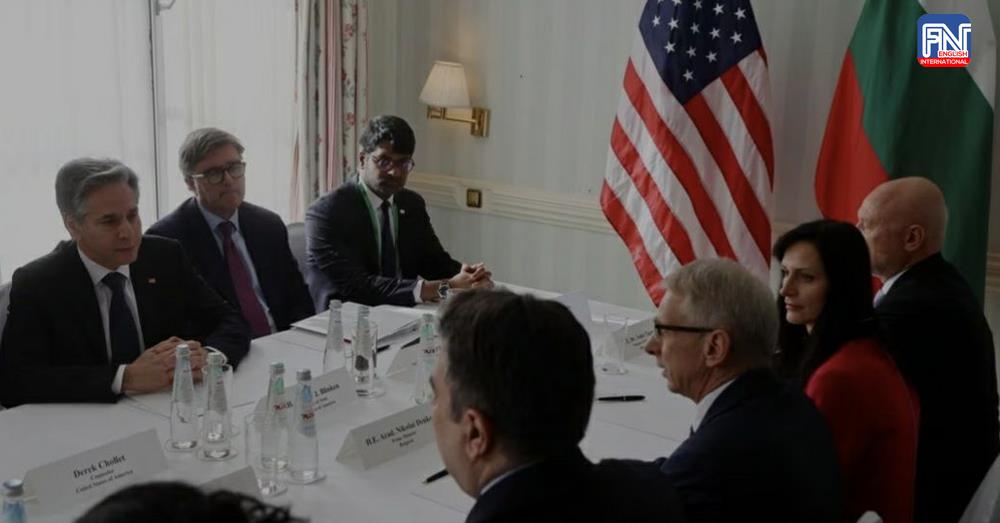MUNICH, Feb 16 (Reuters) - Senior U.S., Arab and European officials met in Munich on Friday to discus progress on formulating a plan for post-war Gaza that would be linked to normalizing ties between Israel and Saudi Arabia, officials and diplomats said.
U.S Secretary of State Antony Blinken, Saudi Arabian Foreign Minister Prince Faisal bin Farhan and the foreign ministers of Jordan, Qatar, Germany, Britain, France and Italy were among those gathering on the sidelines of the annual Munich Security Conference.
Officials said the meeting was the first in such a format since war broke out on Oct. 7 when Palestinian Islamist militant group Hamas attacked Israel.
The aim was for the U.S., European and Arab states to share discussions they have had on post-war Gaza, Israel-Saudi normalisation, Israel's wider integration into the region and security guarantees, a pathway towards a Palestinian state and how to reform the Palestinian Authority, a senior U.S. official said.
Western and Arab states have shown divisions on the Israeli-Palestinian conflict and their response has mostly been to try to ease the humanitarian situation in the enclave.
However, with the number of civilian casualties increasing, officials say there is a sense of urgency to at least put something together for when there is an extended ceasefire.
Washington has led talks with Arab allies, in parallel with negotiations to secure the release of Israeli hostages kidnapped by Hamas when the group crossed the border into Israel and killed 1,200 people in one of the deadliest attacks on the country in decades.
U.S. officials say a hostage deal, which would see the release of the remaining 133 hostages and achieve an extended pause to stop the fighting that has killed more than 28,000 Palestinians, is paramount for broader political negotiations to move forward.
"The Americans have been working with the Arabs so it's good to hear what they have to say," said a European diplomat whose foreign minister attended the meeting.
"It is useful because everybody is trying to get things moving. There's even more urgency because of the impending attack on Rafah," he said.
Israel has vowed to attack Rafah, the southern-most pocket in tiny Gaza, where it says Hamas militants are hiding out among the million people who have been displaced from the north and are taking shelter there.
With the U.S. administration largely backing Israel and entering an election period, some European countries are keen to use their strong relationship with Arab states to also come up with joint initiatives.
The European diplomat said that while the priority for Arab states was working with Washington, a potential victory by former President Donald Trump in November's presidential election could alter the landscape and bring more prominence to European links.
